|
“She said yes!” is commonly heard in engagement stories, echoing the excitement and joy of making the decision to have one’s life forever complemented with another in marriage. As we prepare to celebrate the Solemnity of the Annunciation on Saturday, the Church rejoices in Mary’s acceptance of God’s place for her in His divine plan of the salvation of mankind. Of course, Mary’s “yes” to God is not the only such instance in Scripture; on the contrary, each protagonist’s story within its pages involves his or her responding to the will of God throughout history, from God’s command to “be fruitful and multiply” to Adam and Eve through his instruction to the exiled St. John the Evangelist to “Write, therefore, what you have seen, what is now and what will take place later.” Just like each person in Scripture, we too can share in the delight of accepting God’s will for us through our faith and the surrendering of our personal desires and wants to Divine Providence.
Every book of the Bible recounts at least one instance of God calling a prophet, judge, king, or another figure, no matter their status, to a higher purpose. I particularly enjoy the story of the boy Samuel, whom God called three times before the future judge and prophet, finally understanding Who kept waking him, answered. All of these accounts are more than nice stories—they serve to illustrate the different ways of answering God’s call as well as how God continues to guide us after we answer. The biblical theme still rings true today: “I have called you by name, and you are mine.” On the occasion of the Annunciation, Mary’s “yes” undoes Eve’s “no” to God. Through Mary, the Word was made flesh and she became the new “Mother of the Living” (CCC 489). This motherhood extends to us all! As a result of Mary’s “yes,” she became a tabernacle of the living God now made man. Christ’s complete embrace of humanity during His earthly ministry still affects us today. We are called to allow Him to more fully enter into our lives just as He did in the Virgin’s womb. By creating space for Christ, as Mary did, we are enabled to fully surrender to the Divine Will; our “yes” to God can then echo Mary’s crucial response, “Behold, I am the handmaid of the Lord. May it be done to me according to your word.” How shall we respond? At the Archdiocese of Washington’s Rite of Election this past month, I was blessed to observe over a thousand adults, teens, and children be presented to the Cardinal in order to be baptized or confirmed as Catholics in the Archdiocese of Washington this Easter. They, like Mary, have said “yes!” to God’s invitation. It’s a beautiful witness to see the participants’ formal expression of their desire to become Catholic before their loved ones, sponsors, and the Church. The Rite of Election kicks off a final period of intense spiritual preparation much like our experience of Lent, in which they are called to follow the Lord. As baptized members of Christ’s Body, we are called to offer our support, love, and prayers for these catechumens and candidates as each continues his or her faith journey, that all may strive to remain close to the Lord Who has called them to Himself. Our “yes!” does not occur in a vacuum. Even the already baptized are called to be a light for each other as each of us experiences darkness in our lives. No matter our insecurities or doubts, no matter our past failings or unworthiness, God still continuously calls to us, ever lovingly, ever patiently, ever gently, ever earnestly. Mary had her own questions when the archangel Gabriel dramatically announced God’s plan for her. If you’re like me, you want all the details before making a decision! But, as we read throughout scripture, one’s trust in God is never misplaced. God can—and does—do great things through us if only we allow ourselves to be like “a little pencil in the hand of a writing God.” May we, then, always share the Good News of Christ’s Resurrection, the hope that we share as we receive Communion, as we journey to the Cross, and as we profess—and experience—God’s love. By the grace of God and the support of each other, may we, at every moment of our lives, join with the whole Church and the heavenly host to praise God for His mercy and goodness: “‘Our Savior, Jesus Christ, has destroyed death, and brought us light and life!’ No wonder we [reply], ‘Alleluia!'” (Cardinal Timothy Dolan) **This blog was originally published on March 23, 2017.**
0 Comments
While Christmas is still some time away, the circumstances surrounding the birth of our Lord give reason for us to pause and reflect throughout the year on the great mystery of the Incarnation—the entering of God the eternal Son into time and the human experience. At the Christmas vigil, the Gospel proclamation involves tracing the ancestral lineage of Jesus as “the son of David, the son of Abraham” and the prophetic culmination of divine promises. Those specifications, similar to the grand announcement of The Nativity of the Lord from the Roman Martyrology, draw upon Sacred Scripture to formally declare the birth of Christ and squarely place His entry into time. The USCCB notes: “It begins with creation and relates the birth of the Lord to the major events and personages of sacred and secular history. The particular events contained in the announcement help pastorally to situate the birth of Jesus in the context of salvation history.”
Reflecting on the genealogy of Jesus helps us to remember that he is part of a human family and was raised with particular role models and inherited traditions. It also reminds us that many people helped prepare the way for the coming of the Savior, playing greater or lesser roles for the glory of the Father’s plan. Two people who are part of Jesus’ genealogy, but passed over in Scripture are the parents of the Blessed Mother, Sts. Joachim and Ann. Factually, nothing about the parents of Mary arises from credible historic sources apart from their existence — not even their names of Joachim and Ann are verified! Although they are passed over in Scripture, Mary’s parents are critical as they represent generations who actively participated in the obligations of family and faith life while anticipating the coming of the Messiah. These saints maintained the spiritual and familial environment that nourished and inspired the Blessed Mother to always trust in God and to famously declare, “May it be done to me according to your word.” We find evidence of Mary’s strength of character and trust in the Lord in Scripture, especially Luke chapter 1 verses 28-55 and John chapter 2: Mary is steadfast in making decisions, active in prayer, obedient to the laws of her faith, calm through moments of crisis, and devoted to her relatives. It is not hard to see how such models of parenthood would likely have inspired Mary’s own upbringing of Jesus. We can wonder how much of Mary’s unyielding belief through Jesus’ ministry, Passion, and Resurrection — especially after seeing her son publically brutalized and murdered — was instilled in her by the fortitude and strength she saw modeled by her own parents during her childhood. What can we learn from the parents of the Blessed Mother? We may not all be grandparents, but we can still influence our families through our receptiveness to the perspectives, experiences, and lessons of those preceding us. Truly these are treasures of wisdom not to be taken lightly or ignored. Pope Francis has sought to convey this important observation. During his first World Youth Day as Pope, observing that Brazilians were celebrating Grandparents Day on the feast of Sts. Joachim and Ann, he reflected: "How precious is the family as the privileged place for transmitting the faith! … How important it is to have intergenerational exchanges and dialogue, especially within the context of the family … Children and the elderly build the future of peoples: children because they lead history forward, the elderly because they transmit the experience and wisdom of their lives." The family is often the first community of love, knowledge, and faith that we experience (CCC 2205). It is a great gift to preserve and strengthen that takes our time, talent, and commitment to keep strong. Yet, just as each of our family members are imperfect, so too is our own love despite our best intentions. At times we may lose patience amidst the demands of life. Or, more tragically, we may find ourselves amongst family members who do not know how to love, perhaps products of their own troubled upbringings. When we face difficulties within our families, or see hurt in other intergenerational families, let us remember that regardless of our human relations, we have been born into the spiritual family of the Church. How wonderful it is that despite our earthly circumstances each of us has been entrusted to call God our Father, Mary our Mother, Joachim and Ann our grandparents and Jesus our Brother and Savior. Sts. Joachim and Ann, pray for us! Questions for Reflection: Who are the people in my family who have taught me the beauty of the faith? Which members of my family need me to show them the love of Christ? **This post was originally published on 7/25/2018** Deus Caritas est: God is Love. How many times have we heard this simple yet profound theological truth in a homily, story, or teaching? How many times have we taken this for granted? In a world where truth often seems subjective, God’s love remains a refreshing and comforting constant in the Christian life. If this were not so, for what purpose, let alone by what means, would you or I exist? It is this perfect love of God which sustains us each and every moment of eternity. In fact, it’s God’s very nature, so bursting with love, that wills us into being. So too must our love for our neighbors guide and give purpose to our lives.
The liturgical season of Lent is an especially wonderful opportunity for us to reorient ourselves towards God’s love and mercy. As we prepare to celebrate the ultimate expression of love the world has ever known this liturgical season, we may give up something we fleetingly desire in order to be made more aware of our need to depend on the One Love, the True Love, the Infinite Love. Of course, we can do more throughout Lent, but take to heart the suggestion of my bishop: [T]his Lent, fast and abstain when the Church requires it; give something up to make room for God and his mercy to fill you. Pray more and pray deeply and whenever you can because God listens to you: prayer puts you in touch with God and his mercy. Do something good for someone else every day; resolve to care about someone else every day, because God does, Jesus does and wants you to be like him, loving and full of mercy. Don’t make this Lent a complicated regimen of resolutions and promises that will unravel a week from now. Make it simple. Make it real. [emphasis added] Lent is not a time of self-pity or bemoaning our spiritual shortcomings. To fail to acknowledge God’s willingness to have mercy and forgive the sinner of his or her faults places sin as the end without further hope of relief, restricts one’s view of God as having limits on his love, and risks committing a sin against the Holy Spirit (i.e. believing that the magnitude of a sin is greater than God’s power— and continuous willingness— to forgive [cf CCC 1864]). While Lent brings to mind the classic images of sackcloth and ashes, the Lord desires something much more personal than just the recognition of our sins—“sincere, heartfelt repentance, change of heart, conversion” is what each of us is called to offer the Lord with the same Love He offered to those He encountered in His earthly ministry and ultimately from the Cross. “I desire mercy, not sacrifice,” our Lord, echoing the words of the prophet Hosea, declares to the Pharisees during the calling of Matthew (cf. Hosea 6:6) For us today, these words still ring true. Lent is not an easy time, but it invites us to shake us out of our spiritual complacency if we are to answer the Lord’s call to conversion. This may be uncomfortable. Receiving the ashes on our foreheads tomorrow, however, signifies our commitment to God that we will endeavor each day—and not just until Easter Sunday—to change our lives to be (once again) oriented towards God in avoidance of the sin and distractions which lead us away from His love. While we seek forgiveness from God, we are also to freely forgive others, “And forgive us our debts, as we also have forgiven our debtors.” Even if we fall along the way, the important thing is to pick ourselves up and start again— the Lord is patient! In closing, let us reflect on a final word from the Venerable Fulton Sheen: God loves you despite your unworthiness. It is His love which will make you better, rather than your betterment which will make Him love you. … Say to yourself over and over again, regardless of what happens: “God loves me!” And then add: “And I will try to love Him!” (Fulton Sheen, Remade for Happiness: Achieving Life’s Purpose through Spiritual Transformation (San Francisco: Ignatius Press, 2014), 187, 25.) **This post was originally published on 2/28/2017** “He said to them: ‘… you will receive power when the Holy Spirit comes on you; and you will be my witnesses in Jerusalem, and in all Judea and Samaria, and to the ends of the earth.’ After he said this, he was taken up before their very eyes, and a cloud hid him from their sight. They were looking intently up into the sky as he was going, when suddenly two men dressed in white stood beside them. ‘Men of Galilee,’ they said, ‘why do you stand here looking into the sky? This same Jesus, who has been taken from you into heaven, will come back in the same way you have seen him go into heaven’” (Acts 1:7-11). Forty days ago, we celebrated the miraculous Resurrection of Jesus from the dead and joyful the start of the Easter season. Finally, after millennia of prophecies and expectation, the promise that humanity would be redeemed and restored in its relationship with God was fulfilled. Now Christ had risen in glory and conquered death by His Passion, allowing humanity to once again be united with its loving Creator (c.f. 2 Peter 1:4). This reunification of the disciples and their beloved Teacher was indeed a cause for celebration! What intense feelings of love and wonder must have resounded in the apostles’ hearts after their Master, Teacher, and Savior had been cruelly put to death only a few days ago. They believed that Jesus’ return meant that He would now “restore the kingdom to Israel” to finish His earthly ministry (Acts 1:6). “Not so, not yet,” Jesus corrects them (c.f. CCC 672). Instead, it was now time for Him to join the Father in Heaven since He had accomplished the Mission of atonement that He had been sent to earth for on the Cross (c.f. John 19:30). With that, Jesus was taken up before His followers into Glory. While they were still watching, whether out of wonder, awe, confusion, or fear as what to do next (perceptibly without Jesus), two heavenly messengers appear and urge the disciples not to stand there, looking up. Jesus would come again, they promised. Meanwhile, there was a mission to undertake; they were to go and wait for the Spirit, Who would help them take the next steps towards completing Jesus’ final instructions, which were, as St. Pope John Paul II put it, “the faithful expression of the Father’s will.” Before He was taken up, Jesus said to the disciples, “All authority in heaven and on earth has been given to me. Therefore go and make disciples of all nations, baptizing them in the name of the Father and of the Son and of the Holy Spirit, and teaching them to obey everything I have commanded you” (Matthew 28:18-20). Christ was planning something bigger than establishing a temporal kingdom on earth, as the Jews commonly thought their awaited Messiah would bring. The Apostles, moreover, were instructed to teach— to proclaim the Good News to the whole world. And they were to baptize in the name of the Father, and of the Son, and of the Holy Spirit. Like Jesus, they were to speak explicitly about the Kingdom of God and about salvation. The Apostles were to give witness to Christ to the ends of the earth. The early Church clearly understood these instructions and the missionary era began. And everybody knew that this missionary era could never end until the same Jesus, who went up to heaven, would come back again. (St. John Paul II, “Homily on the Solemnity of the Ascension of Our Lord,” May 24, 1979) We, too, in a sense, can stand with the apostles, looking heavenward to that place where our Lord ascended. We, too, can experience that intense wonder deep within each of us which transforms fear and tragedy, insecurity and tension into a peaceful certainty that floods the heart with loving warmth from God. From this, the same question posed to the disciples nearly two thousand years ago is asked of each of us even today: why do you stand looking up? The Church’s mission has always been that of the Great Commission, to spread the glorious, joyful, and redemptive news of Christ’s rising from the dead (c.f. John 3:16). As Saint Augustine testified, we are the Church and are commanded to accept this mission and not stand idly by in either amazement or apathy! Certainly, Holy Mother Church’s evangelization has endured obstacles, dogmatic disputes, and other setbacks over the centuries in bringing the Good News to the ends of the earth. No matter the challenge, the Church always pulls through since she has been founded by Christ Himself with the promise that “the gates of the netherworld shall not prevail against it” (Matthew 16:18). As the disciples and the Blessed Mother would experience on Pentecost Sunday, it is the Holy Spirit, the gift of the Father, Who is the source of the Church’s strength. It is He Who guides the Church in the way of Truth in the spreading of the Gospel, doing so through the power of God and not by means of the imperfect wisdom or strength of man. After having undergone the humiliation of His passion and death, Jesus took His place at the right-hand of God; He took His place with His eternal Father. But He also entered heaven as our Head whereupon, in the expression of Leo the Great, the glory of the Head became the hope of the body… our nature is with God in Christ. And as man, the Lord Jesus lives forever to intercede for us with Father. At the same time, from His throne of glory, Jesus sends out to the whole Church a message of hope and a call to holiness. Because of Christ’s merits, because of His intercession with the Father, we are able to attain justice and holiness of life, in him… The power of the glorified Christ, the beloved Son of the eternal Father, is superabundant, to sustain each of us and all of us in the fidelity of our dedication to God’s Kingdom. The efficacy of Christ’s Ascension touches all us in the concrete reality of our daily lives. Because of this mystery it is the vocation of the whole Church to wait in joyful hope for the coming of our Savior, Jesus Christ. (St. John Paul II, “Homily on the Solemnity of the Ascension of Our Lord,” May 24, 1979) As part of the “New Evangelization,” we are reminded of this command to reveal the Truth of our resurrected Lord through our words and actions in accordance with how we are called to live as Christians, that is, with love (c.f. John 13:34-35). Like the evangelizers before us, we can expect face challenges when spreading the Gospel message, namely persecution (c.f. John 15:18, Romans 8:35-39, 2 Timothy 3:12, 1 Peter 4:16-19). Ah, but what a price to pay for the glory of God! Remember, too, that Christ promised that He would always be with us in our ministry (c.f. Matthew 28:20, Galatians 2:19-20)! As Pope Francis noted during his fourth general audience, Jesus is no longer “in a definite place in the world as He was before the Ascension… He is now in the lordship of God, present in all space and time, next to each of us.” We can always turn to Him in prayer; He, in turn, will sustain us with strength, grace, and Love. Given the difficulty of our task (often requiring great sacrifice on our part), this is indeed a great comfort! In addition, it is Christ as both God and man Who brings our humanity before God to intercede for us. Finally, the Ascension of the Lord is also our Feast because we have ascended with the Lord! The Feast presents an opportunity to reflect upon the relationship between our profession of faith and our daily life. It is the start of the evangelization of the world by Christ’s disciples and the call for us to do that same Work, started nearly two millennia ago, in joyful witness to the Redeemer of the world. The Solemnity of the Lord’s Ascension must also fill us with serenity and enthusiasm, just as it did the Apostles who set out again from the Mount of Olives “with great joy” (Luke 24:52). Like them, we too, accepting the invitation of the “two men in dazzling apparel”, must not stay gazing up at the sky, but, under the guidance of the Holy Spirit must go everywhere and proclaim the saving message of Christ’s death and Resurrection. His very words, with which the Gospel according to St Matthew ends, accompany and comfort us: “and lo, I am with you always, to the close of the age” (Matthew 28:20). (Pope Emeritus Benedict XVI, “Homily of His Holiness During the Pastoral Visit to Cassino and Monte Cassino,” May 24, 2009 **This post was originally published on 5/24/2014 As we celebrate the Nativity of our Lord Jesus Christ at Christmas, I find myself grateful that the Church has established the liturgical calendar in such a way as to help shake us out of our spiritual complacency. The high-points of the Church year—and the larger Christian experience— are referenced so much in our Faith that we may sometimes find ourselves on spiritual autopilot. Before we know it, we might find that solemnities are immediately upon us (or past us), and we feel that we could have benefited from more spiritual preparation. This year, I was looking for a clear and direct theme I could really focus on as Christmas approached. I came across some writings of Venerable Servant of God Fulton Sheen that called to mind certain details of Scripture that my eyes (and spiritual life) might typically gloss over. Recalling the helpless innocence of the Christ-child ready to be born of Mary, Sheen related Mary and Joseph’s plight in searching for late-night shelter in Bethlehem to the lack of hearts open to God which can offer the King of Kings and Lord of Lords a place to dwell and reign: [W]hen finally the scrolls of history are completed down to the last word of time, the saddest lines of all will be: ‘There was no room in the inn.’ The inn was the gathering place of public opinion, the focal point of the world’s moods, the rendezvous of the worldly, the rallying place of the popular and the successful. But there’s no room in the place where the world gathers. The stable is the place for outcasts, the ignored, and the forgotten… The lesson is: divinity is always where you least expect to find it. So the Son of God-Made-Man is invited to enter into His own world through a back door.[1] With all the seasonal emphasis on gifts and personal generosity, I am especially touched by that first line and the reality that there was no room made available for the arrival of the long-awaited Son of God. How often do we hear calls to be watchful and ready for the Second Coming of Christ; that is, to be repentant of sin and committed to pursuing holiness? This preparation is what the first part of the Advent season is all about. When we are called before the Final Judgement seat of the Most High, and God Himself shows us what we did or did not do for Him[2] in our earthly encounters with the people in our lives, will we say that it was too difficult or inconvenient to take up what we knew was expected of us? All of the baptized are called to be missionary disciples—people who spread the joy of the Gospel by their very lives. We can bring others into an encounter with the Living God—or at least instill a sense of hope, dignity, and love in those who are in need—in the workplace, at home, in our neighborhoods, in our parishes, and within our families. In doing so, we make room in the inn of our hearts for the Christ-child. Without Christ present in our hearts and at the core of our being, we will find ourselves serving a different master—be it vices, worldly pleasures, fleeting successes or honors, or other vanities. Just as the innkeepers of Bethlehem two-thousand years ago declined to open their doors to the Holy Family, so too do each of us have the choice either to be seduced by the empty promises of the world or to pursue a life of holiness and of speaking the Truth among the doubtful, suspicious, hateful, or unrepentant. This Christmas season, let us allow Christ into our lives in order to bring him to others. Let us preach the Gospel with our lives and seek to always make room for him in the inn of our hearts. Christmas is a time for celebration! We rejoice that the Lord God Himself took on human nature and was born as a helpless Child into the world He created in order to free us from sin and death and invite us to live with Him forever. The occasion of Christmas encourages each of us to be a welcoming soul to the Lord rather than one who closed their doors to the Holy Family that holy night: Joy to the world, the Lord is come! Let earth receive her King! Let every heart prepare Him room. And let it begin with me. Amen. [1] Sheen, Fulton. “Life of Christ” (1954). [2] cf. Matthew 25:40. **This post was originally published on 12/27/2019.
The USCCB designates each October as Respect Life Month: “a time to focus on God’s precious gift of human life and our responsibility to care for, protect, and defend the lives of our brothers and sisters.” The duty to bear Christian witness to the dignity of every human life extends, of course, throughout the year. The annual March for Life in DC and similar marches in other cities highlight the efforts of advocates for the unborn, but being pro-life includes many activities that receive less fanfare but that are no less important. By appreciating the inherent dignity and worth of each life as created by God, we recognize the sanctity of creation and our need to defend it.
The existence of an abortion clinic near my home exemplifies disregard for the dignity of human life, as well as the reality that many clients feel as if there is no better option for themselves or the nascent life inside the womb. To attempt to provide clients with an alternative to abortion and offer support, a number of advocates on the sidewalk offer counseling while others protest the clinic’s operation, pray for the souls affected, and pray in reparation for the sins committed there. Drivers and pedestrians passing by often passionately criticize our presence; many others choose ignorance or don’t want to become involved in such a contentious issue. It’s not a comfortable situation to be in, but we know we have a chance to intervene on behalf of the unborn and the parent(s) who don’t know where else to turn for assistance. Our position is not one of judgment but of love; we cannot turn a blind eye to this silent suffering. Being a father, I vividly recall the excitement and joy of seeing my child develop in the womb of my spouse and then be delivered into this world as an infant. These life events made my pro-life convictions more tangible for me. Even under less-than-ideal circumstances of conception, the personhood of the unborn is not diminished and therefore merits protection. Fatherhood continues to teach me about myself and my role leading a family towards holiness. I have learned I must recognize the graces God bestows on us to build our domestic church and be witnesses to the sanctity of life: the person, the family, and our Faith. I am encouraged by the many who engage with the culture and lawmakers to challenge preconceptions or misconceptions about the value of human life. The immigrant, refugee, criminal, and marginalized are endowed with the same worth as each of us! Threats to the sanctity of life endure in our society and also include sterilizations, physician-assisted suicides, human trafficking, mistreatment and neglect of seniors and the disabled, and other forms of abuse. While others may ignore these sad realities, the pro-life movement knows we have our work cut out for us. In every way in which we engage, educate, and work to convert hearts and minds to be more aware of the value of the life which we have been gifted, we must always act with love, compassion, and hope for the protection and celebration of all forms of human life, from conception through natural death. Life is precious, life is sacred, and life is worth protecting. If we do not take a stand to defend the most vulnerable, who will? The month of September is ripe with themes of renewal. Schools begin a new academic year. Some businesses start a new fiscal year. The season of autumn is bright with arboreal colors as some trees begin to turn dormant. Fields and gardens are harvested.
Those of us with yards know now is also the time to prepare and reseed our lawns for new grass to grow. For many, it’s a labor of love to cultivate the land. First the land needs clearing. Rocky soil demands aeration. Soil testing will help with fertilizing. And getting the right seed is critical! Furthermore, once planted, the new seed must be constantly watered, watched, and protected from harsh elements and nefarious agents. Is there a lesson from all this? Yes, great results require great effort, but we are also reminded of the parables of the sower and the weeds (Matthew 13:1-30). What I always liked about these parables was that our Lord Himself explains them so clearly: the Word of God is given to each of us; how it takes root is up to us. The seeds in the parable represent the deposit of faith we have each been entrusted to grow, nourish, and protect as baptized Christians. For those of us with children, we are especially aware of the great gift and responsibility of entrusting the Faith to our descendants. So precious and critical is this sharing that the Church urges parents to have their children baptized without delay. During the Rite of Baptism for an infant, the priest or deacon says to the parents: You have asked to have your child baptized. In doing so you are accepting the responsibility of training him (her) in the practice of the faith. It will be your duty to bring him (her) up to keep God's commandments as Christ taught us, by loving God and our neighbor. Do you clearly understand what you are undertaking? As is the case with any landscaping, the work of spiritual cultivation cannot be underestimated or haphazard. Raising a child in the Faith begins and is centered on the life at home. The environment of faith is so much more than memorizing Scripture or parts of the Catechism; the Faith must be lived! A family that prays together, goes to Mass regularly, is firm in morality and pursuing virtue, and encourages service and charity takes seriously the charge given at Baptism. The deposit of faith is planted at the immersion and anointing of the child during the rites of the sacrament; the family then works and tends to and cares for the germination and growth of this divine inspiration. As good seed sprouts among weeds, so too will the child: he or she will encounter the ways of the world that are ignorant of God; he or she will be tempted by sin; he or she may wander as a lost sheep, though the identity claimed at Baptism never disappears. As baptized believers, do we understand and appreciate what has been given to us? Do we help cultivate our spiritual lives in a way that fosters growth and true life? Pope Francis has urged us to remember and celebrate our baptism date: To forget our baptism means to expose ourselves to the risk of losing our memory of what the Lord has done in us. We risk ending up considering it only as something that happened in the past, and not the Sacrament in which we became new creatures and were clothed with Christ, made part of the relationship of Jesus with God the Father. Thanks to Baptism, we are also able to forgive and love those who offend us and do us harm; we are able to recognize in the last and in the poor the face of the Lord who visits us and is close to us. In short, more than a sociological moment that inscribes our name in the parish register, the day of our baptism constitutes a commitment and the identity card of the believer. The Sacrament of Baptism continues to sustain us through life: we are children of the Most High God! We may go through periods of spiritual drought or darkness, but we can find refreshment and renewal by attending Holy Mass, washing away sin through repentant confessions, and sustaining lives of prayer, faith, hope, and love. Then, having known the fruits of labor initiated by our parents, we can indeed be drawn up as part of the Lord’s bountiful harvest as He Himself has planted: “It [is] very good.” As the ongoing coronavirus pandemic eventually allowed for opportunities to leave the home, one of the most meaningful greetings which welcomed my return to Mass were the familiar words, “Peace be with you.” The calming presence of the parish priest eased the troubles of my mind, soothed the restlessness of my heart, and enlivened my soul to sing, “Let us go unto the House of the Lord!” While the celebration of the Holy Sacrifice of the Mass and the reception of our Lord in Holy Communion immediately made up for the lost time during the pandemic, there were other reminders that we had been away: new priest assignments, reminders to exchange the weekly offering envelopes, many parishioners enthusiastically greeting each other in happy parking lot reunions, our pastor sporting a new beard, and someone even observing, “You’ve lost some weight, Father!”
The place our parish priests hold in our hearts is a treasured one. We depend on them to teach us through homilies, expose the Blessed Sacrament, listen to our sins and offer absolution, preside over the nuptial Mass, baptize our children, anoint the sick, and console us through times of death. And that’s just the minimum. While the rest of us are busy at work, school, or caring for our households, our parish priests are meeting with the church leadership, making rounds at schools or hospitals, organizing retreats and special services, offering spiritual guidance, and working at the rectory. But caring for the spiritual needs of hundreds of parishioners does not end at 5 PM. Starting from the sacred occasion of ordination, a priest is always on-call. Who rushes to the side of the dying, cares for those who have lost everything, counsels those in conflict, or ministers through any number of crises? Who faces the mounting expenses and bills of the parish, limited Sunday collections, possible stagnation of new family registrations, and who perhaps lacks as many helpful hands as he would like to keep the place running smoothly? Especially through this pandemic, the parish priest again and again is called to bring us into an encounter with Jesus Christ as best he can with whatever resources are at his disposal. If caring for our household’s needs presents a challenge, just imagine how the parish priest feels overseeing his parish! As the Church celebrates the feast day of St. John Vianney, we can see how so many of the priests in our lives emulate the example of the Curé d'Ars, who himself followed the example of the priesthood of Jesus Christ. The French Revolution resulted in an increase of the population’s ignorance of and indifference to religion. As a result, St. John Vianney went about his priesthood by spending at least 11 or 12 hours a day in the confessional in the winter; longer still in the summer. The simple piety of this holy priest not only brought about many conversions for the Church, but reinvigorated the faith in areas where secularism had long dominated the culture. Likewise, by immersing themselves into the daily lives of our communities, our parish priests “serve ‘in the trenches,’ bearing the burden of the day and the heat (cf. Mt 20:12), confronting an endless variety of situations in [their efforts] to care for and accompany God’s people.” Pope Francis continued, in his 2019 letter to priests commemorating the 160th anniversary of the death of St. John Vianney, to express his closeness and solidarity to priests. He also expressed personal gratitude “for your fidelity to the commitments you have made… [and] for the joy with which you have offered your lives.” The Holy Father concluded his letter by praising the witness of their shared vocation: For I am confident that “God takes away even the hardest stones against which our hopes and expectations crash: death, sin, fear, worldliness. Human history does not end before a tombstone, because today it encounters the “living stone” (cf. 1 Pet 2:4), the risen Jesus. We, as Church, are built on him, and, even when we grow disheartened and tempted to judge everything in the light of our failures, he comes to make all things new.” … May we be men whose lives bear witness to the compassion and mercy that Jesus alone can bestow on us. Let us strive to show the priests in our lives our gratitude and support. May many men continue to discern and answer the call of our Lord to the sacred work of ordained ministry. As we answer the universal call to holiness in our own lives, may we also support those who have dedicated their lives to answer, “Here I am. I come to do Your will.” To learn more about Holy Orders, listen to our latest podcast here. After nearly three months of what reminded me of the first Holy Saturday—that is, the experience of the apostles not knowing what was in store for them after the apparent loss of their teacher—I was able to participate in the celebration of the Mass offered at my parish. As a result of the COVID-19 pandemic, many of the faithful have had to rely on the remote broadcasting of the Mass in order to remain connected to their local churches. This, of course, is no substitute for the Real Presence, but in the absence of being able to be spiritually nourished as usual, we have been blessed that the pastors of the Church could reach out and minister to us as safely as possible. I witnessed the Church creatively address the problem of being unable to gather together to worship by utilizing the tools of digital social media to share scriptural reflections, homilies, group prayers, and simply to check in and care for various needs of neighbors. The doors of the churches may have been closed, but the people of God charitably opened their hearts.
After being apart for so long, I welcome the news of a return to the public celebration of the sacraments. Nothing could be better than receiving the Body, Blood, Soul, and Divinity of the Lord in the Most Holy Sacrament of the Eucharist. Can a bride be apart from her groom? Are we not in ecstasy to return to Holy Communion when we are cleansed of sin in the Sacrament of Reconciliation? So much more fervently have I longed for He Who dwells most intimately in our hearts and reigns over us. As Padre Pio shared, “My thirst and hunger do not diminish after I have received Him in the Blessed Sacrament, but rather, increase steadily.” There is no better joy on this earth than to participate in the Holy Sacrifice of the Mass. The experience is beyond mere mortal words, but St. Thomas Aquinas aptly selected a few for the Church to sing at the Feast of Corpus Christi: At this great feast of love let joyful praise resound, let heartfelt homage now ascend to heaven’s height: ring out the reign of sin; ring in the reign of grace; a world renewed acclaims its King, through veiled in sight.[1] I look forward to rejoicing with the Psalmist, “I was glad when they said to me, ‘Let us go to the house of the Lord!’”[2] The widespread return to the sacraments will be a most welcome act of devotion, if not a critical one, for our spiritual lives. Until then, we can participate in other devotions, such as spending time before the Blessed Sacrament (perhaps from the parking lot or via livestream) and simply gazing at our Lord. We can continue our prayer life and even adopt new prayer methods, such as Lectio Divina or the Chaplet of Divine Mercy, into our routines. We can say a daily act of Spiritual Communion or set apart five minutes a day for reflection and contemplation. Christ always accompanies us. His grace continues to abound for us; peace and comfort are always offered; and He never abandons us in our sufferings, however they may have been manifested in recent days. This time of staying at home has given me an insatiable thirst to receive the Lord physically in the Eucharist upon my tongue and into the core of my being! Thomas Aquinas, also called the Angelic Doctor, continues: When we eat the bread of gladness, there is here no cause for sadness: Christ can suffer pain no more. One or many, each is given whole, entire, the bread of heaven: mortal minds can but adore. … Jesus, whom for the present veiled I see, what I so thirst for, oh, vouchsafe to me: that I may see thy countenance unfolding, and may be blest thy glory in beholding. Amen.[3] If we allow our Lord to reign in us, even the least of us can be instruments of His Love and accomplish great deeds “for the praise and glory of his name, for our good and the good of all his holy Church.” As we have observed from our time apart, we are still able to recognize the Lord in the dignity and service of others, as well as in our day to day routines and lives of prayer. The graces never cease being poured out for His Church and our mission of evangelization never ends. He always accompanies us and that is enough! With a spirit of divine love and faithful accompaniment, we can “open wide the doors for Christ” for others in our homes, workplaces, and centers of care as much as in our intimate chapels, simple parishes, and breathtaking basilicas. [1] Sacris solemniis, St. Thomas Aquinas [2] cf. Psalm 42:1 [3] Adoro Te Devote, ibid. Many of us are acutely aware of how the coronavirus pandemic has imposed restrictions on our daily life. Social distancing (or “self-imposed monasticism”, as Bishop Barron puts it) for weeks has drastically changed our routines but reduces the risk of infecting others. While we cannot worship, shop, entertain, work, or relax as usual, we can adapt how we carry out these activities in isolation and facilitate opportunities to foster connections with peace of mind. As a Knight of Columbus, it was at first a challenge for me to grasp how a global Catholic service order—built upon fraternity among members as a core principle—could carry out its charitable works in isolation. The needs of the community my local council usually served were not going to decrease as this crisis continued, so we found ourselves reviewing the resources at our disposal in order to comply with the federal and state guidelines of social distancing. Since we could not meet as a council to plan our actions, communicating online became the norm. My brother Knights were able to approve plans to shop for the needs of those at-risk populations, collect food and supplies for local distribution, and donate funds to the parishes we served. We reached out to healthcare workers and those who are alone to address their needs and lend a listening ear. As Knights, we’re simply caring for our communities; our Faith rallies us to action to serve in the likeness of our Founder, Venerable Fr. Michael J. McGivney and, of course, our Lord. There are challenges ahead, but we rise to the occasion through prayer, hope, and love. The doors may be closed, but make no mistake: the Church is alive! Christians and really anyone who seeks the common good are given this same opportunity to review their position in life and see if they can offer any support among their neighbors. Young families are dealing with schools and recreational areas being restricted; some neighborhoods are decorating themselves with various engaging themes, such as Christmas light exhibitions or placing teddy bears in windows, that families can drive through. In addition, those of advanced age or among vulnerable populations may not feel safe leaving their homes during the pandemic; loved ones are sending letters, making phone calls, or even stopping outside of windows and doors to share smiles and wave safely across the glass. As we restrict our time outside of our homes, we nevertheless find inspiration in the selfless actions of those continuing to minister to the physical, mental, and spiritual needs of others. Doctors, nurses, cleaning crews, food workers, priests, religious, and many others on the front lines of this crisis are faithfully doing their duties wherever they are called. The rest of us do our part by restricting unnecessary activities and offering our love to anyone in need. We may have personal doubts and worry for our loved ones, and that’s okay. We have not lived through anything like this before, but we know the Risen Lord has conquered death forever. He was with the disciples even when they doubted His Resurrection; He is with us now… and through the hour of our death. The Easter season continues. While most of the Masses we are participating in are livestreams and our usual Communion with the Lord is currently a spiritual act, we continue to proclaim “Alleluia!” Our hope has not diminished. We have no reason to fear! The victory has been won. The best is yet to come. He is risen from the dead. Glory to God forever and ever. Praised be Jesus Christ, now and always! Amen. At the time I’m writing this post, daily life as we’re used to has been turned on its head as a result of the COVID-19 global pandemic. Non-essential businesses are closed, usually busy streets are empty, many schools and workplaces are operating remotely—if at all—and people everywhere are isolating themselves and thinking about supplies. Perhaps most striking are the extraordinary measures the Church is taking to slow the spread of the coronavirus: public celebrations of Mass are suspended, as are any number of RCIA, seminary, and parochial academic and sodality programs, and any sacramental celebrations that had been planned can only take place with minimal attendance. While the faithful have been dispensed of the obligation to attend Sunday Mass, we can’t help but feel a growing hole in our hearts which can only be filled by lovingly receiving our Lord in the Eucharist. This was not the Lent any of us had been expecting— certainly we are all giving up more than we had bargained for!
Does this remind anyone of Holy Saturday? Holy Saturday allows the faithful to pause and meditate upon the emotionally heavy commemoration of the Lord’s Passion and Death on Good Friday before rejoicing in the glorious joys of Easter Sunday. Holy Saturday is strange because no Masses are celebrated anywhere on the planet and the faithful find ourselves waiting for the Easter dawn when we can rise from having humbled ourselves through the Lenten practices of prayer, fasting, and almsgiving. These days may resemble Holy Saturday for all who are waiting in isolation from the outside world. Like the Apostles’ experience of the first Holy Saturday, we are all resigned to waiting: for positive news about testing and treatment for the virus, yes, but also for the reopening of schools, businesses, and churches, and for being able to rekindle relationships in person. Still, we recall we are not done with Lent yet. However our Lenten spirituality has been affected by self-quarantining, the liturgical life of the Church continues despite the virus. Our churches may be devoid of public celebrations, but the Church Universal endures and can adapt, using the tools of the times to evangelize and to address the yearning of our hearts, souls, and very beings. The Church, after all, is more than the sum of her buildings, real estate holdings, art, music, and writings—she is alive in each of us as we continue our Lord’s earthly ministry by serving one another in love, compassion, and mercy. There are plenty of reasons to hope. We see online reports of priests who, out of love and care for their people, broadcast their celebrations of the Holy Mass through the Internet or radio, adapting scheduled hours in the confessional, Lenten reflections and observances, and Eucharistic Adoration in ingenious ways (such as from cars), and connecting many to available life-sustaining resources. Let’s lift up in prayer our priests who continue to lay down their lives for others, especially for the sick or dying, and who continue to shepherd their people throughout this unprecedented time. Let us also consider offering them a token of appreciation; we must never take them for granted! The faithful are benefitting from the love of our priests despite not being able to see them as usual. We are discovering all sorts of new spiritual resources developed by generous catechists and are finding ways of caring for our neighbors’ spiritual, emotional, mental, and physical needs. We remain united in faith, hope, and charity as we navigate these days of uncertainty and waiting. Nevertheless, we have unique opportunities for personal growth this Lent and Easter: bringing others into a new encounter of trust and peace with Jesus Christ and His Church. Similar to the experience of the early Church facing threats to their very existence, we may not have open parishes at the moment, but we nurture and care for the domestic churches of our friends, families, and loved ones. We are one Church—pursuing holiness and the same heavenly destiny—assured by the Almighty Himself of the ultimate victory over evil and death which is the Easter rising of the Son: “I am the resurrection and the life; whoever believes in me, even if he dies, will live, and everyone who lives and believes in me will never die.”[1] For more resources to accompany you throughout the Lenten and Easter seasons, click here. For more resources to accompany you through the COVID-19 pandemic, please click here. [1] John 11:25-26, cf. Revelation 1:17-18. \We are once again in the midst of the liturgical season of Lent. These forty days before the Triduum are opportunities to prepare ourselves to enter into the Passion of Christ through penitential practices such as prayer, fasting, almsgiving, and self-sacrifice. Done correctly, our Lenten practices can be cathartically cleansing as we imitate Christ’s forty days in the desert after His baptism. This incredible withdrawal of the Lord from the outside world to dwell on the calling of His Heavenly Father before the commencement of earthly ministry remains a model for us all. During Lent, the faithful do not isolate themselves from the world in fear but rather draw strength from Christ. Shaking off the comforts and complacencies of living in the world may be a bit jolting, but our ultimate goal is holiness; anything else is just a noisy distraction which can never truly satisfy our deepest desires. Today, technology has become integrated into our lives and relationships. Social media, the internet, and the incredible utility of our smartphones may occupy a large part of our daily attention. It’s no wonder we can find it harder to disconnect from the outside world. Indeed, while the proper and moderated use of technology can be beneficial, observing the dangers of failing to unplug from the world (i.e., harming real human connections), has helped deepen my appreciation for the isolation opportunities afforded by Lenten observances. Lent calls each of us to remember the ultimate sacrifice God Himself made on Good Friday. This salvific act is so significant that it cannot be restricted to just one day on the liturgical calendar. The Church commemorates Jesus’ Last Supper, Passion, and Death during the Triduum. As these days draw near, the faithful are called to prepare themselves to enter into the Paschal Mystery by putting aside our worldly comforts and imitating how our Lord spent precious time among His disciples before His death. While Lent is an increased time of preparation and time of intentional growth in holiness, the Church has no shortage of opportunities to deepen our relationship with the Lord year-round. Sunday Mass offers us the spiritual nourishment and proper grounding to start each week. The choices we make in the hours or days following Mass can build upon the scriptural and sacramental foundations laid during the service. Recommitting ourselves to our families and their needs can strengthen the love binding us together; praying with and serving each other builds up the domestic church. For example, volunteering to lead devotional prayers together as a couple or family is a beautiful expression of intimacy and faith. Additionally, during Lent and beyond, we may replace screen time with spiritual reading so we can be inspired by the writings of saints or theologians and discover new avenues of holiness for our lives. Certainly, we can sacrifice a worldly comfort during Lent, but we can also perform charitable works and make a difference in the lives of others during this season. Lent is not a diet! Lent is intended to bring us closer to God, Who is found not in the noise of the world, but in the quiet whisperings of an open heart. Prayer enables us to make room in our hearts for Him to dwell in the temples of our bodies and radiate through our lives. We cleanse ourselves of distractions that prevent us from the holiness He calls us to and we commit ourselves to prayer, fasting, and almsgiving. We repent of our sinful shortcomings and avail ourselves of the sacraments of the Church. Our desire to accompany our Lord can be fulfilled by our faithful vigilance in Eucharistic Adoration, especially in the nighttime hours when our “spirit is willing, but the flesh is weak.” Our Lord is present in the Eucharist we receive at Mass, the Sacrament we adore, the family we are a part of, and the people we serve. He is always ready to not just be a relegated part of our lives, but the core of our very being. The season of Lent can serve to motivate us to choose the better part rather than be complacent in the empty comforts of the world. Though we seek isolation from the distractions of the world to accomplish a meaningful and fruitful Lenten observance, we are promised by the Lord God Himself that we never walk alone when he says: “I am with you always, until the end of the age.” For more resources to accompany you throughout your Lenten journey, please click here. I’m blessed to be a part of a family which includes three different vocations: marriage, religious life, and the discernment of the priesthood. The annual March for Life, which occurred this year on January 24th, provided my wife and me an opportunity to host not only her sister who joined a religious order, but also several members of the religious community. As they are part of a semi-contemplative order, the sisters made the most of their time in DC touring the city, visiting historic and spiritual sites, and learning in museums—all while sharing a public witness to their vocation. As their hosts, my wife and I had a unique vantage point which allowed us to see the reactions of passersby, both the bewildered and the curious, who are not accustomed to seeing women religious in public. The sisters are used to it, and more importantly, realize they have an opportunity to evangelize and share with others who they are and what their vocation is. Often a chat or introductions will be made, prayer cards will be given, and some pictures are taken (whether stealthily or outright). I noticed the sisters made the most of these moments, probably because they realize they can bring anyone they meet into an encounter with the Lord. The sisters and their joy witness to God’s fidelity in ways often unknown. At the Vigil Mass for Life at the Basilica of the National Shrine of the Immaculate Conception, the sisters were just a few of the many women religious present. Though each order’s habits are different, I noticed many pilgrims came up to the sisters after the Mass to inquire about their order and their distinct purple habits. The same happened at the March for Life the next day: many people simply took photos of or with the sisters, others exchanged pleasantries, memories, and prayer cards, and others ran up to the sisters and thanked them for their vocations or wanted to learn more about the order. Returning home with them across town that afternoon, however, we left the massive crowds who shared our values and encountered the daily commuters of DC. I was amused to watch them look up in surprise from their smartphone screens. The sisters would happily engage with their fellow passengers, chat about religious life, and in one case, ask a practicing Hindu about their bindi, or a vermilion mark. Similar scenes occurred over the weekend. but it wasn’t all like a celebrity sighting: on more than one occasion, the sisters would go up to a homeless or mentally-ill person and, after chatting a bit about Jesus and Mary, share a miraculous medal and holy card to remind them about faith and invite them to trust in God. These were people used to being passed by on the sidewalk each day as they begged for food or for someone to listen to and be with them. Imagine the shock they experienced when “strangely dressed” women were suddenly engaging with them and treating them with respect and compassion! There is no way of knowing just how God may have used the sisters as a means of planting the seeds of faith in various encounters. Certainly the unusualness of the situation might shake someone out of their complacency and eventually cause them to recall a positive memory of faith from youth or simply remember consecrated persons live and act in the world as a beautiful witness to… something. That something may lead to a renewed quest for truth or personal peace. In God’s good time, this yearning may be a motivation to reconnect with God and embrace a life of faith and holiness. But all of us, especially laypeople, are similarly called to holiness by virtue of our baptism in Christ Jesus. We need not depend on wearing a religious habit to draw others into an encounter with the Lord, but can invite others in our schools, workplaces, social gatherings, and homes to participate in religious practices such as grace before meals, going on a pilgrimage to a holy site, reading books by the saints, or simply starting a meaningful conversation. The options for spiritual accompaniment are endless. Given time, prayer, and trust in the Lord’s will, each of us can instill the smallest seed of faith which can grow into a towering wonder. For more resources on Vocational Discernment, please click here. To learn more about spiritual accompaniment, please click here. In Romeo and Juliet Shakespeare famously asked, “What's in a name? That which we call a rose by any other name would smell as sweet.” Names convey not only an identity, but also one’s familiarity, intimacy, and attention with the subject. We are each taught the names of our surroundings in our infancy so as to be able to associate experiences and qualities with them. And this spirit of discovery continues even today, with great ceremony being performed upon uncovering an unknown celestial body, lifeform, or element. To name something is to also claim dominion over it. In Scripture, for example, Adam was tasked to name the creatures of the earth. In Genesis we read, “So the LORD God formed out of the ground all the wild animals and all the birds of the air, and he brought them to the man to see what he would call them; whatever the man called each living creature was then its name.” To call something by name implies a relationship with the person or thing named. That is why when Moses asked God Who he should say sent him to free the Hebrews from slavery, the Lord revealed the Divine Name:
Then Moses said to God, “If I come to the people of Israel and say to them, ‘The God of your fathers has sent me to you,’ and they ask me, ‘What is his name?’ what shall I say to them?” God said to Moses, “I am who I am.” And he said, “Say this to the people of Israel, ‘I am has sent me to you.’” God also said to Moses, “Say this to the people of Israel, ‘The Lord, the God of your fathers, the God of Abraham, the God of Isaac, and the God of Jacob, has sent me to you’: this is my name for ever, and thus I am to be remembered throughout all generations. This example illustrates the power of God’s Name. It is how He identifies Himself to the people of Israel and legitimizes their relationship as His Chosen People. God’s name is also sacred and demands respect. Recall the Second Commandment, as written in the Old Testament: “You shall not invoke the name of the LORD, your God, in vain. or the LORD will not leave unpunished anyone who invokes his name in vain.” (Exodus 20:7 and Dt 5:11) The name of God is so holy that the Jewish people dare not even pronounce it out loud. As Catholics, we are similarly taught that God’s name is of the utmost holiness and should only be invoked in one’s speech to bless, praise, or glorify the Lord (cf. CCC 2142-2149). His name must never be abused by careless speech, false oaths, words of hatred, defiance of God, or used in unholy ceremonies. This applies to the name of Jesus as well: Therefore God has highly exalted him and bestowed on him the name which is above every name, that at the name of Jesus every knee should bow, in heaven and on earth and under the earth, and every tongue confess that Jesus Christ is Lord, to the glory of God the Father. In his 2007 book, Jesus of Nazareth, Pope Emeritus Benedict XVI observed that God established a relationship with mankind when He revealed His name to Moses. The Incarnation, he continued, was then the fulfillment of the process that “had begun with the giving of the divine name” (Benedict XVI, 144). This relationship did not make man equal to God but “protect[s] the wonderful mystery of his accessibility to us, and constantly assert[s] his true identity as opposed to our distortion of it”(Benedict XVI, 144-145). And Christ Himself underscored the sanctity of His Father’s Name with the inclusion of “hallowed be thy name” in the prayer He taught His disciples. We pray with these words each week in Mass. As we do, have we realized the importance of what we are saying? To remind us of this truth, the Church has instituted the Feast of the Holy Name of Jesus (in its current form) as an optional memorial to be celebrated on January 3 of each year since 2002 (but originally established by Pope Innocent XIII on December 20, 1721). How great a gift that the Lord God Almighty has so intimately revealed Himself to us! Unfortunately, in today’s society there is no limit to the number of times when our culture irreverently invokes God’s name in the media, creative works, and everyday conversation. As we begin a new calendar year, how can we better model respect and humility when using God’s holy name? Can we do anything in our classrooms, workplaces, or online profiles to witness a life of respect and reverence for God? As Catholics, we are blessed to be able to pray to and know a personal God who has revealed not only His name, but even sent His only Begotten Son to be among us—something we remember this Christmas season. Let us rejoice in this knowledge and continue to cry out with our lives, “O Lord, our God, How awesome is Your name through all the earth!” -Psalm 8:2 As we celebrate the Nativity of our Lord Jesus Christ at Christmas, I find myself grateful that the Church has established the liturgical calendar in such a way as to help shake us out of our spiritual complacency. The high-points of the Church year—and the larger Christian experience— are referenced so much in our Faith that we may sometimes find ourselves on spiritual autopilot. Before we know it, we might find that solemnities are immediately upon us (or past us), and we feel that we could have benefited from more spiritual preparation. This year, I was looking for a clear and direct theme I could really focus on as Christmas approached. I came across some writings of Venerable Servant of God Fulton Sheen that called to mind certain details of Scripture that my eyes (and spiritual life) might typically gloss over. Recalling the helpless innocence of the Christ-child ready to be born of Mary, Sheen related Mary and Joseph’s plight in searching for late-night shelter in Bethlehem to the lack of hearts open to God which can offer the King of Kings and Lord of Lords a place to dwell and reign:
[W]hen finally the scrolls of history are completed down to the last word of time, the saddest lines of all will be: ‘There was no room in the inn.’ The inn was the gathering place of public opinion, the focal point of the world’s moods, the rendezvous of the worldly, the rallying place of the popular and the successful. But there’s no room in the place where the world gathers. The stable is the place for outcasts, the ignored, and the forgotten… The lesson is: divinity is always where you least expect to find it. So the Son of God-Made-Man is invited to enter into His own world through a back door.[1] With all the seasonal emphasis on gifts and personal generosity, I am especially touched by that first line and the reality that there was no room made available for the arrival of the long-awaited Son of God. How often do we hear calls to be watchful and ready for the Second Coming of Christ; that is, to be repentant of sin and committed to pursuing holiness? This preparation is what the first part of the Advent season is all about. When we are called before the Final Judgement seat of the Most High, and God Himself shows us what we did or did not do for Him[2] in our earthly encounters with the people in our lives, will we say that it was too difficult or inconvenient to take up what we knew was expected of us? All of the baptized are called to be missionary disciples—people who spread the joy of the Gospel by their very lives. We can bring others into an encounter with the Living God—or at least instill a sense of hope, dignity, and love in those who are in need—in the workplace, at home, in our neighborhoods, in our parishes, and within our families. In doing so, we make room in the inn of our hearts for the Christ-child. Without Christ present in our hearts and at the core of our being, we will find ourselves serving a different master—be it vices, worldly pleasures, fleeting successes or honors, or other vanities. Just as the innkeepers of Bethlehem two-thousand years ago declined to open their doors to the Holy Family, so too do each of us have the choice either to be seduced by the empty promises of the world or to pursue a life of holiness and of speaking the Truth among the doubtful, suspicious, hateful, or unrepentant. This Christmas season, let us allow Christ into our lives in order to bring him to others. Let us preach the Gospel with our lives and seek to always make room for him in the inn of our hearts. Christmas is a time for celebration! We rejoice that the Lord God Himself took on human nature and was born as a helpless Child into the world He created in order to free us from sin and death and invite us to live with Him forever. The occasion of Christmas encourages each of us to be a welcoming soul to the Lord rather than one who closed their doors to the Holy Family that holy night: Joy to the world, the Lord is come! Let earth receive her King! Let every heart prepare Him room. And let it begin with me. Amen. [1] Sheen, Fulton. “Life of Christ” (1954). [2] cf. Matthew 25:40. |
Details
Archives
July 2024
Categories
All
|
About |
Media |
© COPYRIGHT 2024 | ALL RIGHTS RESERVED



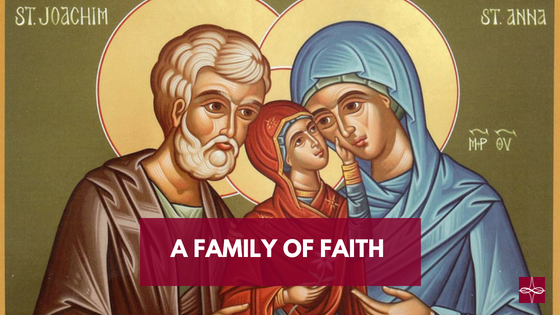

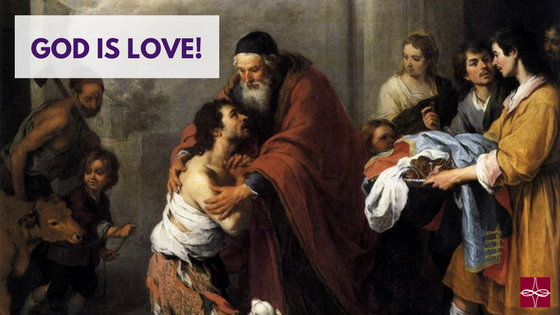
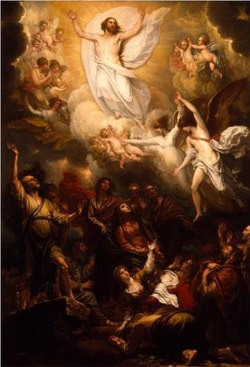

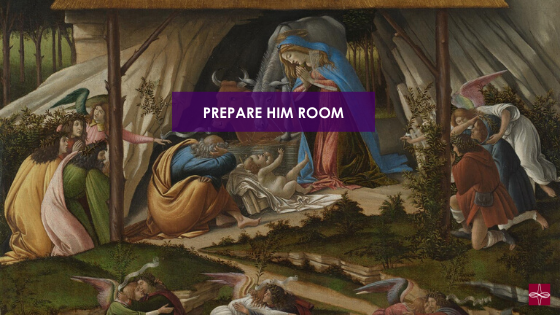

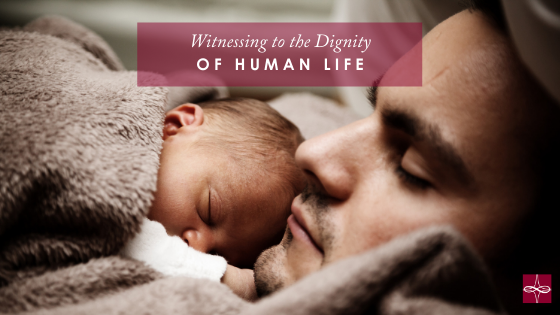



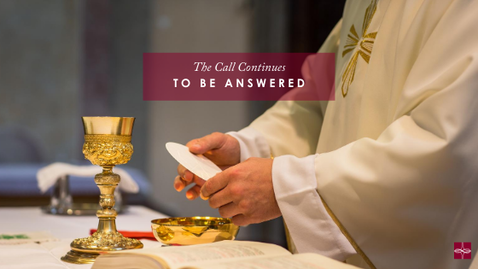

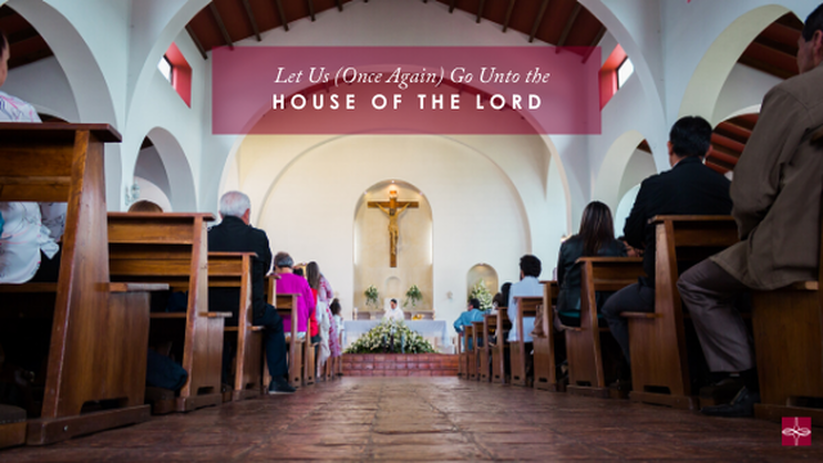
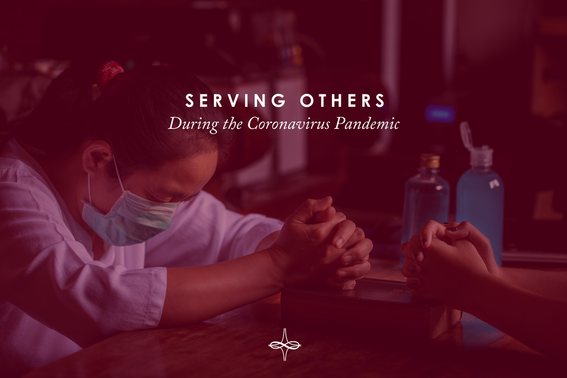

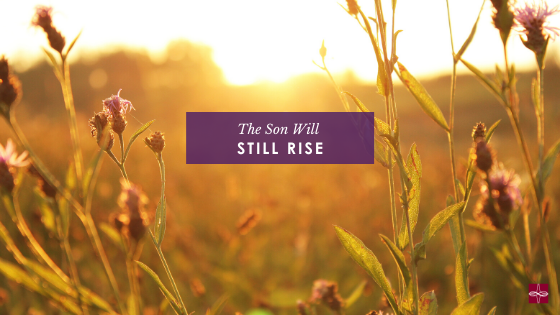
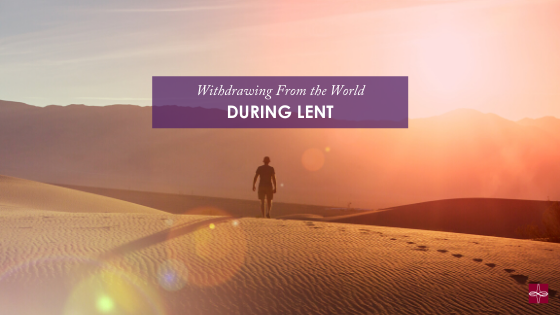

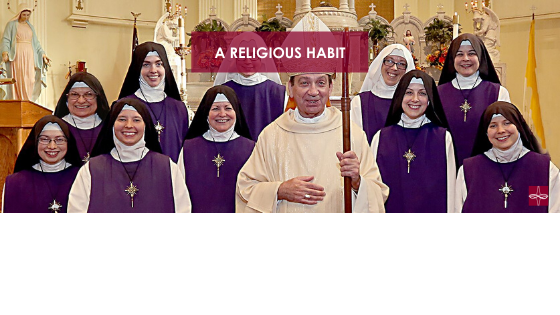
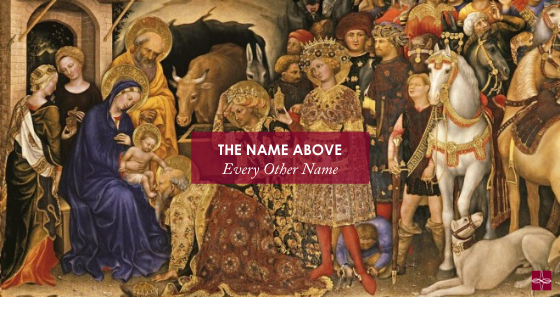
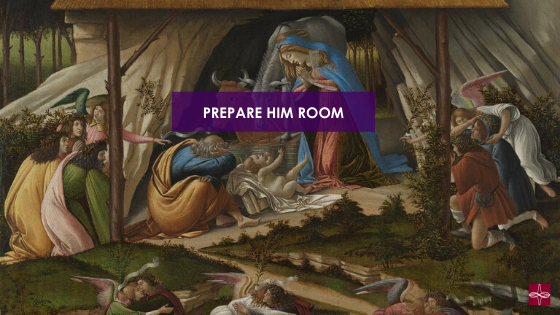
 RSS Feed
RSS Feed